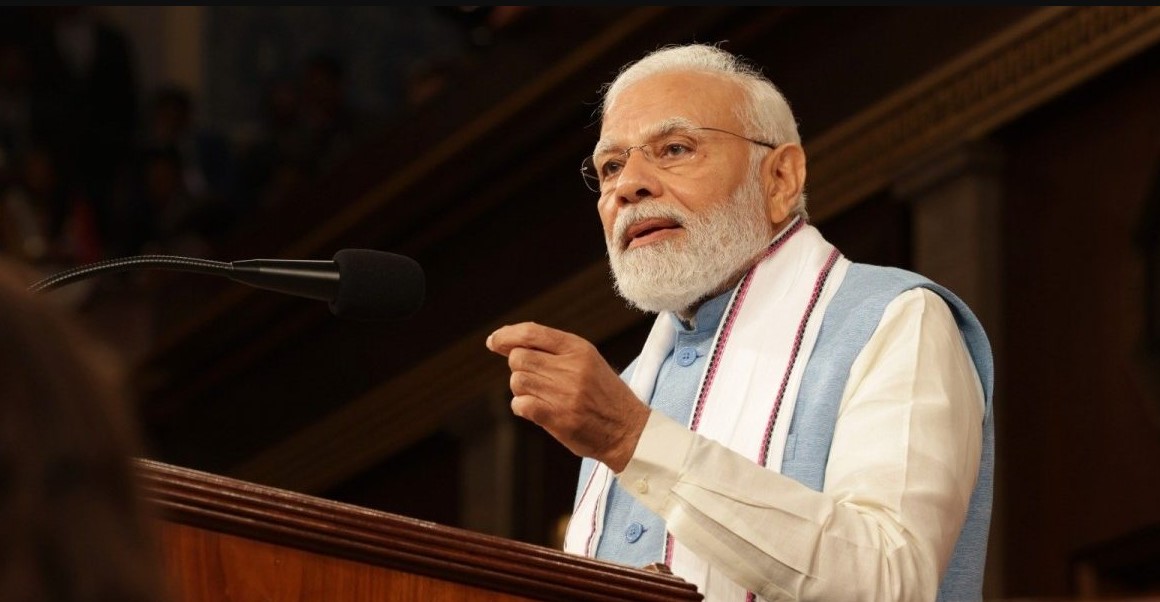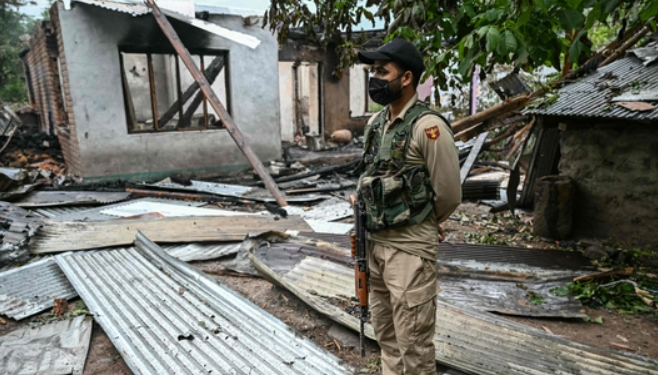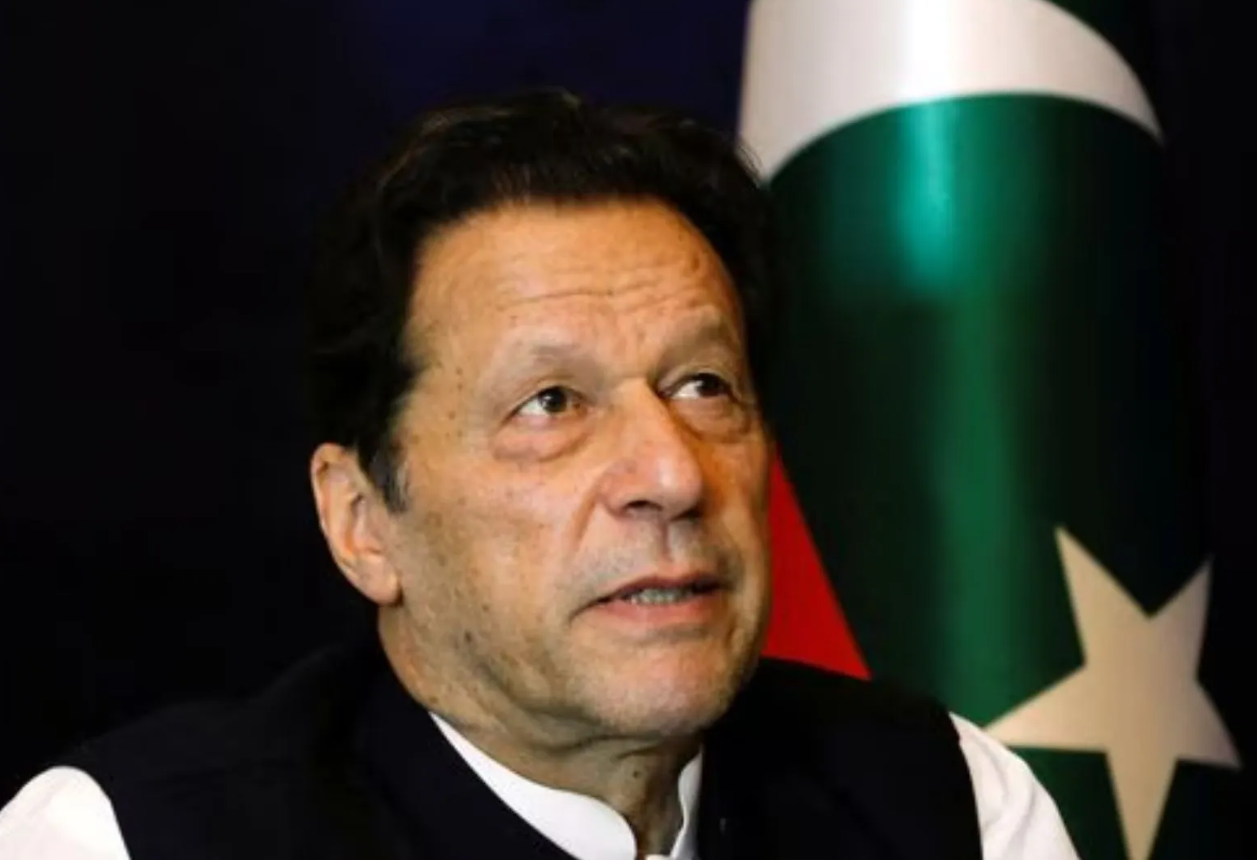
The Climate Action Tracker, which tracks the climate actions of around 40 countries and their impacts, rates India’s overall climate action as “highly insufficient” as per its last update on November 15, 2022.
On June 22, Prime Minister Narendra Modi said that India is the only G20 country that has fulfilled all the promises it made in Paris on climate change. Modi was referring to targets listed under the 2015 Paris Agreement while addressing a joint news conference with US President Joe Biden in the White House.
But while India is indeed implementing some actions to achieve its goals (for instance, India has one of the most rapidly developing renewable energy sectors in the world) and is faring better than many other nations, it has much distance to cover to fulfil all its promises. The Climate Action Tracker, which tracks the climate actions of around 40 countries and their impacts, rates India’s overall climate action as “highly insufficient” (as per its last update, dated November 15, 2022).
As per another index, India is on track to meet its 2030 emissions targets, but not its renewable energy pathway.
India and its climate targets
Under the Paris Agreement of 2015, India submitted its first set of Nationally Determined Contributions. NDCs are a set of long-term goals to cut carbon emissions and adapt to climate impacts. Every country signatory to the Paris Agreement has to submit these NDCs, and update them every five years.
India’s first NDCs included decreasing emissions intensity of India’s GDP by 33-35% compared to 2005 levels by 2030; increase total cumulative electricity generation from clean energy sources to 40% by the same year (achieving 175 gigawatts of clean power by 2022 was a target to forward this); and create an additional carbon sink of 2.5 to 3 billion tons through increasing forest and tree cover.
Though India is faring better at developing clean energy projects, it missed its 2022 renewable energy target of 175 GW.
In August 2022, India updated its NDCs. The aim now is to reduce emissions intensity of its GDP by 45% by 2030 when compared to 2005 levels; achieve about 50% cumulative electric power installed capacity from non-fossil fuel-based energy resources by 2030; and push forward the concept of LiFE – Lifestyle for Environment – to promote and foster sustainable lifestyles and consumption patterns.
India doing better than others, but has more to do
On June 22, Modi, in an address at the White House, said that India is the only G20 country that has fulfilled all the promises it made in Paris on climate change.
“You perhaps know that of the G20 countries, the promises they made in Paris, of all the G20 countries, India is the only country that has fulfilled all the promises it made at the G20,” PTI quoted him as saying. “Not just that, in the area of solar energy in Glasgow, we have set ourselves a target to achieve 500 GW of renewable energy by 2030,” Modi said.
Modi said that India will not only fulfil its responsibilities but also help others including the US in this critical area, reported PTI.
It isn’t the first time that the prime minister has said this. In August 2021, Modi said that India is the only country in the G20 that is “moving fast towards achieving its climate goals” as per Hindustan Times.
However, according to Climate Action Tracker (CAT), an independent scientific project that tracks government climate action and measures it against the globally agreed Paris Agreement, India needs to do much more to achieve its targets.
The CAT tracks climate action of 39 countries and the EU, which covers around 85% of global emissions. The national actions it keeps tab of include the effect of climate policies and action on emissions, and whether a government is doing its “fair share” compared to others in the global effort to limit warming consistent with the Paris Agreement.
As per its last update (dated November 15, 2022), the CAT gives India’s climate actions an overall rating of “highly insufficient”, indicating that India’s climate policies and commitments are not consistent with the Paris Agreement’s 1.5°C temperature limit. It cites several reasons for this rating.
One of them is that India continues to provide support for both fossil fuels and renewable energy, CAT’s summary for India noted. It does so through direct subsidies, fiscal incentives, price regulation and other government support. However, subsidies for fossil fuel are nine times higher than renewables, and are mainly targeted at petroleum, CAT’s India analysis reported.
The CAT also lists India’s Long-term Strategy for Low Carbon Development (LTS) as “Poor”. Reasons for this include the fact that as per its LTS, India plans to continue to develop coal in the long term.
“Overall, the level of information provided is extremely limited with no emissions pathway to demonstrate how India will reach net zero by 2070. It remains unclear as to whether India’s net zero by 2070 target covers all greenhouse gas emissions, or just CO2,” the CAT summary noted.
Meanwhile, India improved its ranking this year in the Climate Change Performance Index, rising from 10 to 8. The CCPI compares the climate performance of 59 countries and the EU, which together account for 92% of global greenhouse gas emissions.
India is one of the “high performing countries” in the index and earns a high rating in the Greenhouse Gas Emissions and Energy Use categories, with a medium for Climate Policy and Renewable Energy, as per the CCPI. But while India is on track to meet its 2030 emissions targets (compatible with a well-below-2°C scenario), the renewable energy pathway is not on track for the 2030 target, the Index noted.
G20 and India
As per the CAT, its net zero evaluations for G20 and selected other countries (as of November 2022) show that “most net zero targets are formulated vaguely and do not yet conform with good practice across different design elements”. “Robust short-term targets and pathways towards achieving them will be required to fully realise their ambition,” the tracker noted.
In 2020, the year’s Climate Transparency Report (which compares climate action between G20 countries) – which also cited data from CAT – found that no G20 countries were on track to meet the targets set out in the Paris Agreement of 2015. As per the latest Climate Transparency Report 2022, India, along with the US, is among the countries that need to “enshrine their net zero targets into law”. Methane emissions in the G20 have increased by 1.4% between 2015 and 2019, the report noted. The Global Methane Pledge was launched at COP26 in Glasgow in 2021 and parties signatory to this have agreed to take actions to reduce global methane emissions by at least 30% from 2020 levels by 2030. But to do so, signatories must scale-up activities. High emitters including India need to join the Pledge, the report said.
All G20 members need to also “ramp up implementation to keep 1.5°C within reach”, the report noted.
The report also quotes CAT’s analysis that says that the overall level of ambition and action is still insufficient to meet 1.5°C. The report read: “…G20 members are still not taking the necessary level of accountability of action. Although most countries have submitted stronger NDC targets over time (except for Brazil, India, Indonesia, Mexico, and Russia), their overall level of ambition and action is still insufficient to meet 1.5°C, according to the Climate Action Tracker…”
However, India could achieve some targets, including net zero greenhouse gas emissions well before 2070, International Renewable Energy Agency (IRENA) Director General Francesco La Camera said in February this year.
“My impression is that India will achieve targets such [as] net zero emissions by 2070 and 500 gigawatts of clean energy capacity by 2030 well in advance,” Economic Times quoted him as saying.










